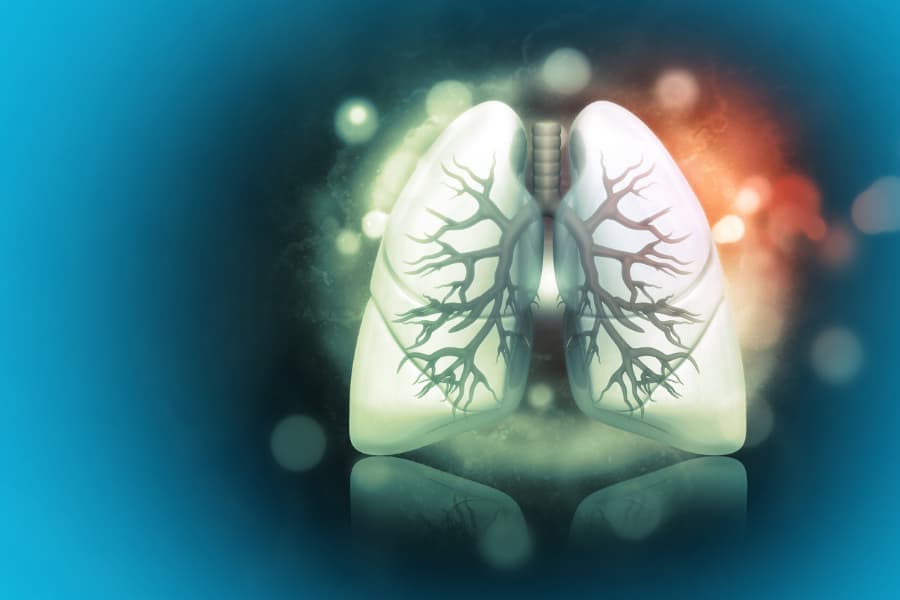Though they share similarities, lung cancer symptoms in women can appear differently than those in men. This may be a result of various factors, including the types of lung cancer each gender tends to develop, the age of patient diagnosis, and the stage during which it is detected. The award-winning physicians and health professionals at Richmond University Medical Center are available to provide lung cancer treatment and routine lung screening to help prevent the onset of lung cancer and its symptoms. Here, we focus on lung cancer and the additional symptoms women should watch out for.
What Is Lung Cancer?
Lung cancer is the development of irregular cell growth in the lungs. It is the deadliest form of cancer and the second most diagnosed cancer in the world. Its principal cause is tobacco smoking and secondhand tobacco smoke. Exposures to radon, asbestos, coal, or other toxins, which poison or block oxygen to the lung’s bronchial airways, are also linked to the onset of lung cancer. Paradoxically, there has been an uptick in lung cancer among patients who have never smoked or who quit smoking years before diagnosis.
Lung Cancer in Women and Men
While similarities exist among genders, lung cancer seems to occur differently in men and women. One of the main differences is diagnostic trends between the genders. According to the American Lung Association, over the past 42 years, men have experienced a 36% decrease in lung cancer diagnoses, while there was a simultaneous increase of 84% in women. While this tendency in lung cancer rates among women has evened out, they typically develop lung cancer at an earlier age and experience higher survival rates than men. It is unclear if this contrast across the genders ia due to gender genetics, different responses to treatments, types of lung cancer, stage of diagnosis, or other factors.
Lung Cancer in Women
Non-small cell lung cancer (NSCLC) makes up the majority of lung cancer cases. However, a major difference in lung cancer in women is that they tend to develop adenocarcinoma, which comprises about half of all NSCLC diagnoses. This is the leading form of lung cancer in women, and it is not linked to smoking. Adenocarcinoma is increasingly common among young women and non-smokers worldwide.
Lung adenocarcinoma creates tumors in the cells of small air sacs located in the lung’s peripheral portions. This differs from squamous cell carcinoma (SCC), which occurs in the lung’s main passageways. SCC is directly linked to smoking and is most often diagnosed in men. These patients typically display well-known lung cancer symptoms, but because these two types of cancers develop in different parts of the lungs, symptoms across genders can vary.
Lung Cancer Symptoms in Women
Women who develop adenocarcinoma may notice no signs or symptoms at first. As cancer progresses, they may experience symptoms, such as:
- Shortness of breath with physical exertion
- Fatigue
- Discomfort in the shoulders, neck, or back
During later stages of the disease, other signs of sickness can appear, such as:
- Chest pain
- Chronic and persistent cough with or without blood
- Throat discomfort and/or hoarseness
- Wheezing
- Fever
- Sudden, unexplained weight loss
- Lack of appetite
It is common for adenocarcinoma to be misdiagnosed as bronchitis, pneumonia, or lung disease before being properly detected. Though it typically stays in the lungs, if adenocarcinoma spreads or metastasizes to other regions of the body, other symptoms may follow such as numbness, dizziness, or weakness, as well as bone pain.
Get Cancer Prevention and Treatment at Richmond University Medical Center
Those who suspect they or a loved one may have any signs of lung cancer can turn to the award-winning and compassionate physicians and medical professionals at Richmond University Medical Center in Staten Island, New York. Our board-certified oncology team can help patients navigate the different lung cancer symptoms, especially those in women, and offer a variety of treatments that fit the diagnosis. To learn more about lung cancer and treatment options at Richmond University Medical Center, contact us today.




